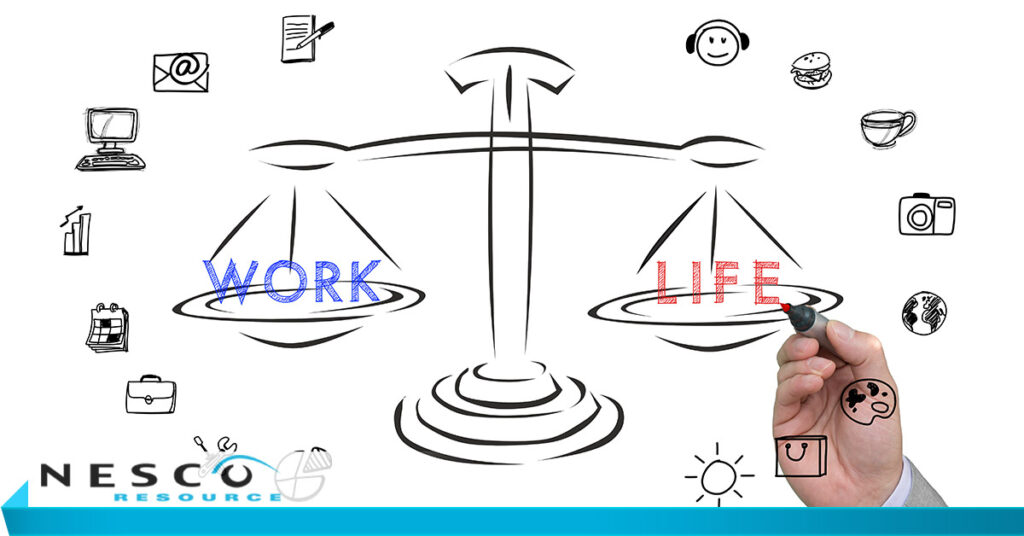
No matter how dedicated you are to your job and being a hard worker, it is essential for your overall well-being and work performance to find work-life balance. If your work regularly encroaches into your after-hours life, or you feel like you have no personal time due to your work schedule, it is unsustainable and can lead to burnout. Take control of your job and personal satisfaction by following these tips to maintain a healthy work-life balance:
Clarify Your Goals, Professionally and Professionally
What is it that you specifically want to accomplish, both at work and in your personal life? Clarify specific goals (i.e., “I want to work more efficiently so I can leave at a reasonable time each day” or “I want to take an exercise class three evenings per week”). This will establish a foundation of what work-life balance truly means to you and help you take the appropriate steps to achieving it.
Set Priorities
Time can get away from you during the day at work and in the evenings at home unless you set priorities. Each day, determine what is most important for you to accomplish at work, and in your personal life. This helps you direct your focus and ensure you are devoting time to both what will make you productive and what will make you personally fulfilled. For example, you will feel comfortable leaving the office to make it to a 6:00 pm dinner date if you know you took meaningful action toward high priority tasks during the workday.
Avoid Multitasking
If you want a better work-life balance, a major key to this is avoiding multitasking. When you are at work, be fully at work. Avoid distractions and focus all your energy on one task at a time. Switching back-and-forth makes you accomplish less since your brain has to work harder to keep pace with the changing tasks and corresponding cognitive functions for them. You will be able to produce better results that prevent you from having to work more hours and negatively impact your personal time.
Establish Boundaries – and Stick to Them
Be honest with yourself – could your own actions be contributing to your lack of work-life balance? For example, if you are readily accessible by your boss or colleagues and responsive during your off-time, they have no reason to think it is an issue for you. Or perhaps you put pressure on yourself to work longer and “do one last thing” which causes you to be late getting home. Once you understand your role in your issues with work-life balance, establish boundaries (such as not answering non-emergency emails outside of work hours) and commit to sticking to them.
Land the job that is right for you by working with Nesco Resource. Since 1956, we have been working with job seekers to match them with opportunities from employers, from temporary to permanent placement. Search our current openings now.

